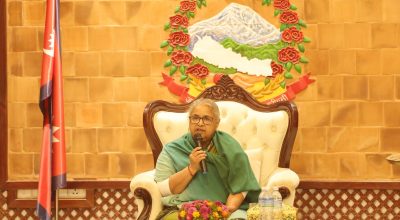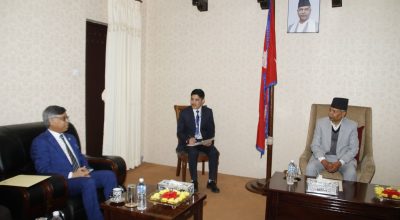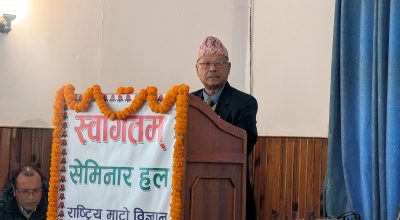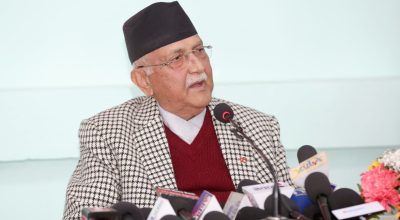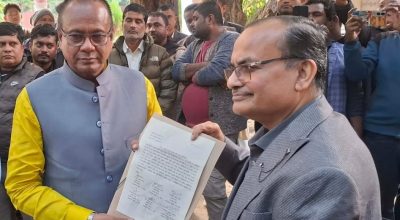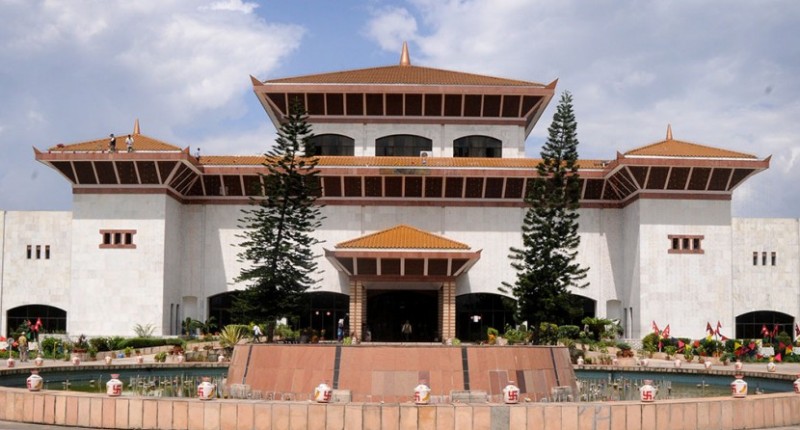
Kathmandu, Dec 15: Saranga Subedi and Abdul Ajiz Musalman who are recommended by the Judicial Council for appointments as the justices of the Supreme Court (SC) of Nepal underwent a parliamentary hearing on Friday.
During the hearing, lawmakers questioned them on the issues relating to accountability and trust on judiciary. Gyanendra Karki expressed his concern over barriers citizens face in accessing justice while Mahesh Bartaula showed concern over increasing decline in people’s faith in the judiciary.
“Justice has become expensive in Nepal,” he said, questioning justice nominees on their plans to make court services timely and convenient to citizens.
Pending of cases, lack of citizen’s access to judiciary, delayed justice and court’s intervention in development efforts were among the concerns of lawmakers.
Ishwari Gharti asked why there was pile of pending cases, limited citizen access to the judiciary, delays in justice delivery, and the court’s obstructions in development efforts.
In response, Subedi assured lawmakers that the judiciary is actively working on plans to ensure prompt delivery of justice. “Evidences and laws matter in judiciary. Any case has to follow certain procedures before it is sorted out. Legal procedures can’t be bypassed in the name of prompt justice,” she said.
As she said, she has 21-year experiences of advocacy and 14-year experiences of working as a judge and is committed to utilising her long professional experiences in the SC.
Ramesh Lekhak, Janardan Sharma, Jeevan Pariyar, Ishwori Neupane, Dol Prasad Aryal, Ramesh Jung Rayamajhi, Prakash Adhikari and Devendra Dahal were among those taking part in the hearing.
Court verdicts are always based on law and evidences and judiciary is never meant to obstruct the development of the nation, the proposed justices argued.
The proposed justices Subedi and Musalman have also shared their plans on how they would work at Supreme Court.
They vowed to speed up the settlement of pending cases at Supreme Court. A new method would be adopted for case management.
Efforts would be made to ensure quality in court verdicts and verdict implementation made more effective. According to them, barriers to citizen’s access to justice would be identified and addressed well from the court.
Timely flow of information on court activities and verdicts is another activity they included in the plan.
Judicial good governance, independence, accountability, change in work style of court workforce are also prioritized by the proposed justices.
The Judicial Council meeting held on November 21 had recommended six justices for Supreme Court. Among them, two nominees Subedi and Musalman faced parliamentary hearing on Friday.
It is worth noting that as of mid-November, the number of pending cases at SC stands at 28,164. Similarly, High Courts report 29,145 such cases while the number stands at 121,951 in the district courts. RSS





